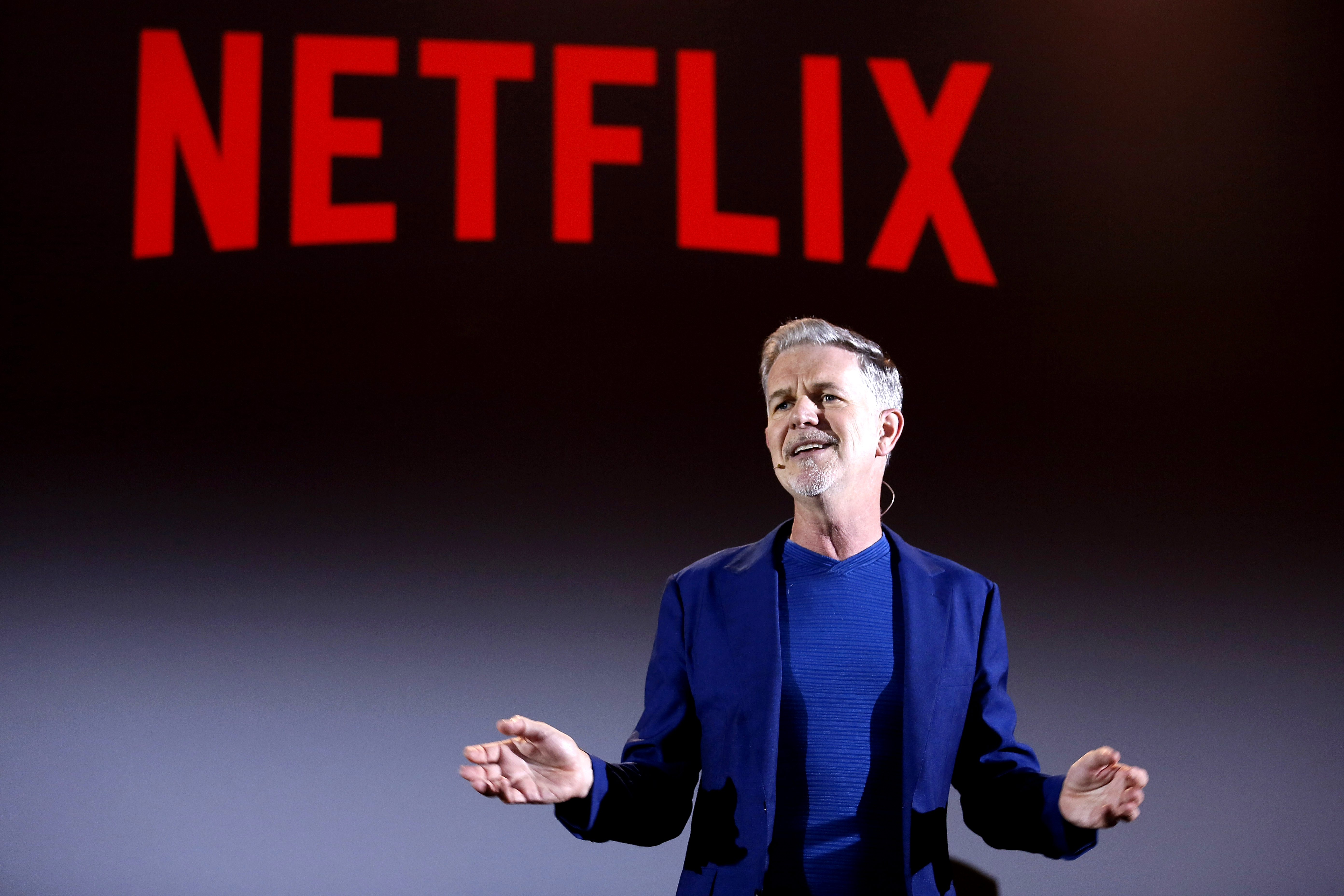Netflix's culture of fear
The Silicon Valley giant's workplace is reportedly ruthless. Is it worth it?

A free daily email with the biggest news stories of the day – and the best features from TheWeek.com
You are now subscribed
Your newsletter sign-up was successful
The smartest insight and analysis, from all perspectives, rounded up from around the web:
At Netflix, the workplace culture can be "ruthless" and "demoralizing," said Shalini Ramachandran and Joe Flint at The Wall Street Journal. The Silicon Valley-based streaming giant counts "radical candor and transparency" among its highest corporate values. "Virtually every employee can access sensitive information," such as viewer numbers for Netflix's shows; about 500 executives can see the salaries of every staffer. The same transparency applies to evaluating performance. The company encourages team dinners "where everyone goes around and gives feedback and criticism about others at the table." Managers are encouraged to regularly apply a "keeper test" to their staff, "asking themselves whether they would fight to keep a given employee" and firing those for whom the answer is "no." Netflix CEO Reed Hastings uses the keeper test himself, and last year fired one of the company's first employees, a close friend for decades. Some employees, though, see the test as a cover for "ordinary workplace politics," and the firings as callous. One former Netflixer says she saw a fired colleague crying as she packed her boxes. Other employees looked away, fearing that "helping her would put a target on their back."
Sure, working at Netflix is tough, "but the grown-ups it hires can handle it," said Joe Nocera at Bloomberg. Back in 2004, Patty McCord, Netflix's human resources chief, created a legendary 120-slide PowerPoint deck explaining Netflix's culture of "freedom and responsibility." She pushed her boss to "keep only our highly effective people." It was McCord who devised the keeper test. "Can you guess how the story ends?" In 2011, Hastings used the keeper test — and fired her. McCord was a grown-up, so she understood. The plight of Netflix's employees would be more sympathetic if they were Rust Belt factory workers whose jobs were being shipped to Mexico. "But they're elites — highly paid Silicon Valley elites who have probably been through three or four jobs and are working at a place where they know that someday they'll be fired, at which point they'll be handed a big severance and find another job within days." Netflix's culture helped make the streaming service an enormous success. Both shareholders and employees should hope that "Hastings never stops firing people."
The Week
Escape your echo chamber. Get the facts behind the news, plus analysis from multiple perspectives.

Sign up for The Week's Free Newsletters
From our morning news briefing to a weekly Good News Newsletter, get the best of The Week delivered directly to your inbox.
From our morning news briefing to a weekly Good News Newsletter, get the best of The Week delivered directly to your inbox.
At Netflix, said Rhett Jones at Gizmodo, "kill or be killed seems to be accepted as mode of operation." People in other corporate cultures might recognize some of the elements of the "Netflix way": "brutal honesty, ritual humiliation, insider lingo, and constant fear." Taken together, they are a "unique version of corporate hell." But people who join the company "go in with their eyes open," said Todd Spangler at Variety. Few employees seem irked by the policy of letting go those who aren't stars. If they were, would Hastings keep his 87 percent approval rating from Netflix workers on the company ratings site Glassdoor? Netflix also took the No. 1 spot on a survey in which tech workers were asked which company they most wanted to join. "Dismissing employees who aren't working out should make Netflix stronger." A company set on "becoming the world's biggest entertainment company" can't afford to carry dead weight.
A free daily email with the biggest news stories of the day – and the best features from TheWeek.com
-
 The Olympic timekeepers keeping the Games on track
The Olympic timekeepers keeping the Games on trackUnder the Radar Swiss watchmaking giant Omega has been at the finish line of every Olympic Games for nearly 100 years
-
 Will increasing tensions with Iran boil over into war?
Will increasing tensions with Iran boil over into war?Today’s Big Question President Donald Trump has recently been threatening the country
-
 Corruption: The spy sheikh and the president
Corruption: The spy sheikh and the presidentFeature Trump is at the center of another scandal
-
 The pros and cons of noncompete agreements
The pros and cons of noncompete agreementsThe Explainer The FTC wants to ban companies from binding their employees with noncompete agreements. Who would this benefit, and who would it hurt?
-
 What experts are saying about the economy's surprise contraction
What experts are saying about the economy's surprise contractionThe Explainer The sharpest opinions on the debate from around the web
-
 The death of cities was greatly exaggerated
The death of cities was greatly exaggeratedThe Explainer Why the pandemic predictions about urban flight were wrong
-
 The housing crisis is here
The housing crisis is hereThe Explainer As the pandemic takes its toll, renters face eviction even as buyers are bidding higher
-
 How to be an ally to marginalized coworkers
How to be an ally to marginalized coworkersThe Explainer Show up for your colleagues by showing that you see them and their struggles
-
 What the stock market knows
What the stock market knowsThe Explainer Publicly traded companies are going to wallop small businesses
-
 Can the government save small businesses?
Can the government save small businesses?The Explainer Many are fighting for a fair share of the coronavirus rescue package
-
 How the oil crash could turn into a much bigger economic shock
How the oil crash could turn into a much bigger economic shockThe Explainer This could be a huge problem for the entire economy